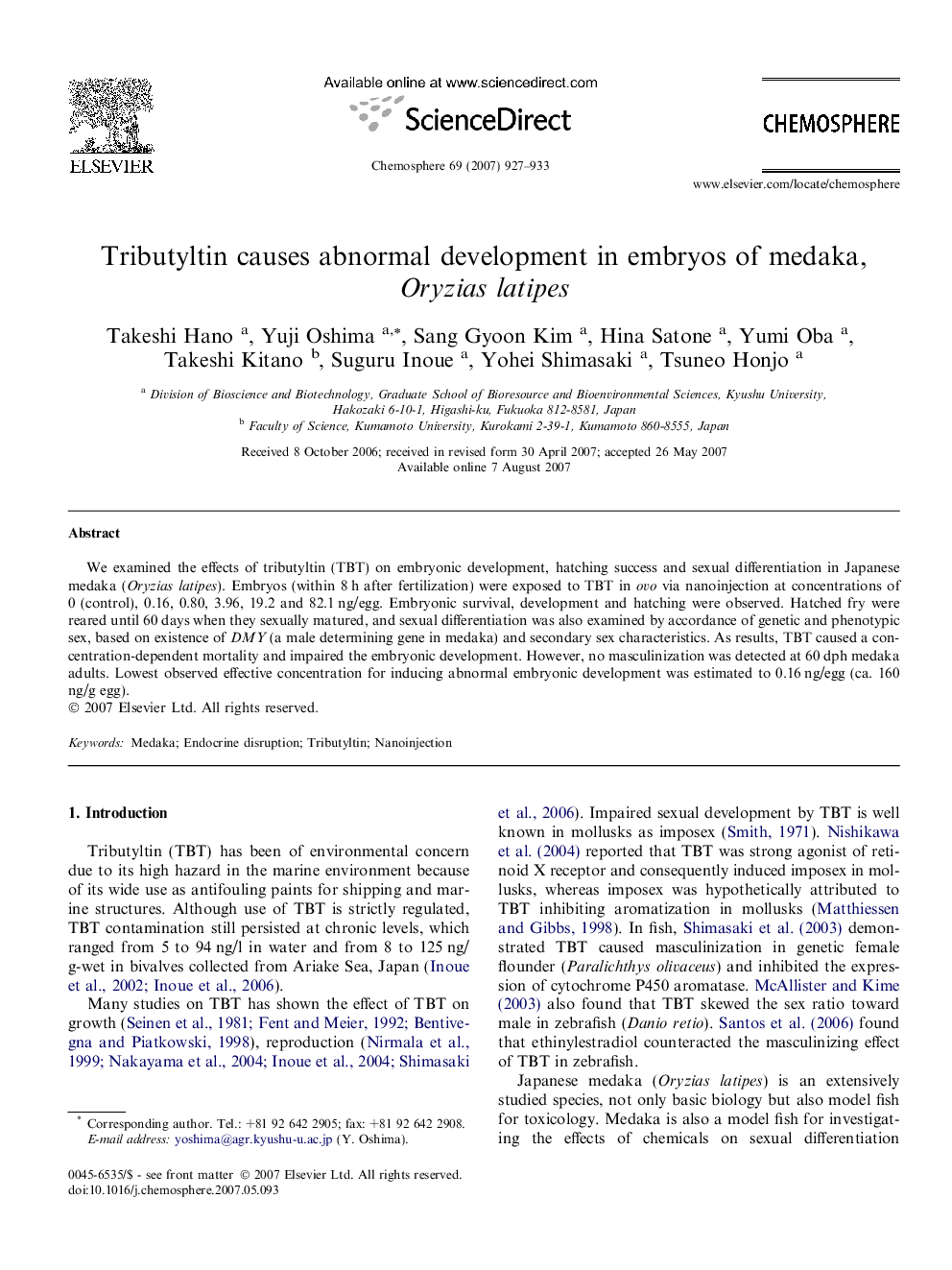| Article ID | Journal | Published Year | Pages | File Type |
|---|---|---|---|---|
| 4414574 | Chemosphere | 2007 | 7 Pages |
We examined the effects of tributyltin (TBT) on embryonic development, hatching success and sexual differentiation in Japanese medaka (Oryzias latipes). Embryos (within 8 h after fertilization) were exposed to TBT in ovo via nanoinjection at concentrations of 0 (control), 0.16, 0.80, 3.96, 19.2 and 82.1 ng/egg. Embryonic survival, development and hatching were observed. Hatched fry were reared until 60 days when they sexually matured, and sexual differentiation was also examined by accordance of genetic and phenotypic sex, based on existence of DMY (a male determining gene in medaka) and secondary sex characteristics. As results, TBT caused a concentration-dependent mortality and impaired the embryonic development. However, no masculinization was detected at 60 dph medaka adults. Lowest observed effective concentration for inducing abnormal embryonic development was estimated to 0.16 ng/egg (ca. 160 ng/g egg).
